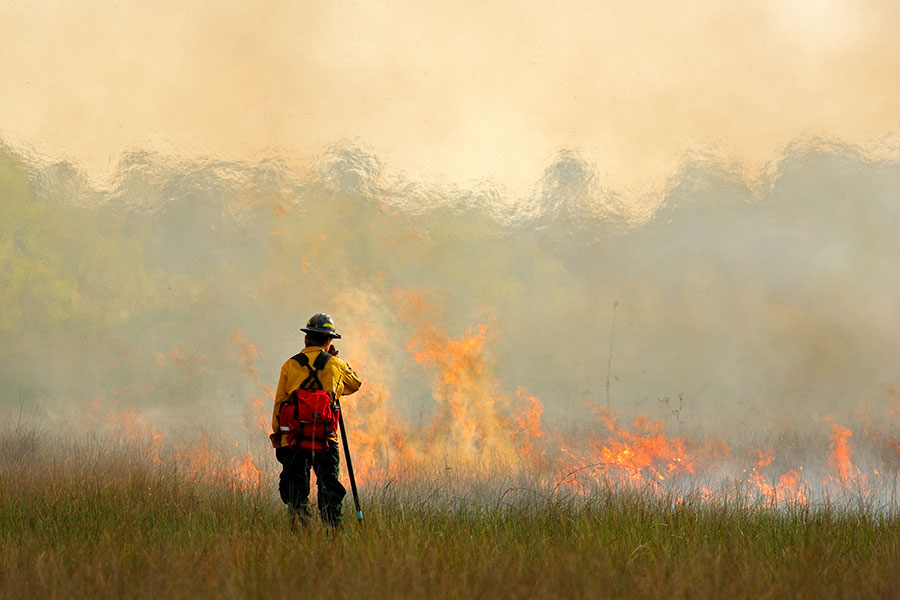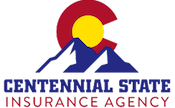
Many across the state of Colorado are concerned with fire danger, and with good cause. This year’s fire season is already in full swing with several fires across the state. Being prepared for these life changing events can help make the process smoother.
In the content below, we discuss how you can best protect your property from incurring wildfire damages and also explore wildfire insurance options and considerations.
Preparing Your Property
There are many measures you can take before a fire. Mitigating trees on your property can reduce the risk of your home being a total loss. Remove trees close to the home, and thin trees on the property. Make sure that trees are trimmed and remove dead trees. Widen your driveway and create a turnaround area for fire trucks. The best steps you can take is to contact a mitigation company or your local fire department and have them come out to the home to make suggestions.
Clear Excessive Brush and Move Fuel Sources
You need to also clear brush 30 feet around your home. Rake pine needles, keep grass and weeds cut short to lower their fuel potential, remove any dead brush from under decks and take steps to close of the holes that allow dead brush to get under decks. Move any other fuel sources (gas cans, propane tanks, etc) away from the home. If you have a wood pile, make sure the pile is stored a safe distance from your home. Keep your gutters, chimney and roof clear of needles and leaves.
Help Make Your Home Wildfire Resistant
There are steps to make your home more fire resistant. Metal, clay or a non-combustible roofing material lowers your risk of the home catching fire from wind-blown embers, or crowning tree fires. You can also look into a less combustible siding material like brick, masonry, stone or hardboard.
Next time you replace your deck, look into trek or composite decking material. Upgrade your windows to double or triple pane, limit the number of windows and size of the windows that open to your largest area of vegetation.
Update Your Policy with Wildfire Insurance Coverage
It is a great idea to contact your insurance agent to talk about your individual risks and if you are insured adequately. Our lives change over time, and we don’t always remember to tell our insurance agents about the new floor we put in the home. It is best to do this before a fire starts. Once there is an active wildfire you can not change or issue an insurance policy, until the fire is over.
Dwelling
The first thing you want to go over with your insurance agent will be your dwelling value. Make sure that your agent knows about any upgrades you have made to the home.
- Have you added an addition, or renovated the kitchen?
- Did you replace the roof or siding on the home?
The details of your home may have changed since you originally bought the house. You need to make sure your insurance policy reflects these changes, and that your dwelling coverage will adequately replace the current condition of the home. Most insurance agents will use a replacement cost guide to input the information about your home and get an estimate of the cost to rebuild.
Detached Structures
Also, make sure you have enough coverage for detached structures such as sheds, barns or garages. Most policies have some coverage for detached structures built into the policy, but it is important to ensure that you have enough.
With today’s technology it is a great idea to use your smart phone and take photos or videos of your personal property. Walk around your house, shed and garage. Document what is on your shelves, dressers, safes, drawers, closets and jewelry boxes. This not only helps to prove the type of item you had, but will also help you remember what you had in the junk drawer.
Valuables
Most insurance companies have a built in limit for jewelry, fine arts, guns and collectibles. Consider the value of these items and talk to your agent about the built in limits and is scheduling these items would benefit you. When you schedule these items they are covered for the appraised value.
Special Motorized Vehicles
Many people are not aware that motorized vehicles are not covered on a homeowners policy. If you have a classic car, motorcycle, ATV, snowmobile, trailer, or motorized boat in your garage or barn, they will not be covered by the homeowners policy. Make sure that you have them covered under their own policy with at least comprehensive coverage on them.
Next week, we will have some tips on preparation for evacuation, and what to do during and after a fire.
